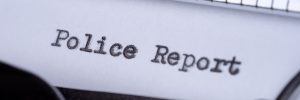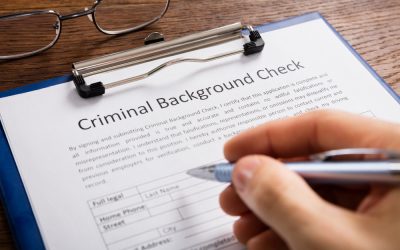
If you were recently arrested for driving under the influence (DUI), law enforcement officials will need to file a police report that contains all of the relevant and necessary information regarding your arrest and the accusations against you. Police reports are the first review of your case by the prosecuting attorney.
Understanding what information is contained in your DUI police report could prove valuable as you head into negotiations for a plea agreement or begin preparing your defense strategy. Here is more about what information is typically contained in a DUI police report.
The Importance of DUI Police Reports
A police report that details your driving under the influence arrest could prove invaluable if you are charged with this offense. The police report will contain information regarding why the law enforcement officer made the decision to move forward with your arrest and the evidence they obtained in the course of their investigation or stop.
Although a police report will typically not be introduced as evidence at trial, it can provide your lawyer with critical information regarding how the arresting officer will testify at trial and the types of evidence the prosecuting attorney may have to support your conviction.
Information contained within a DUI police report gives your attorney an opportunity to evaluate the strengths and weaknesses of the state’s case against you so we can determine how to best approach your defense strategy.
Important Information Your DUI Police Report Contains
DUI police reports often contain a wide variety of information. Some of the most important information contained in a DUI police report include:
- Why law-enforcement officers made the decision to stop you
- How police officers came to the determination that you were under the influence of alcohol or drugs at the time of the stop
- The results of your breathalyzer tests or other chemical blood alcohol test results
- Details regarding your field sobriety test results
- The police officer’s name and badge number
- Other relevant information or details regarding your stop or arrest
It is important to note that DUI police reports often include multiple narratives of the event. This is because there are often several officers involved in a DUI arrest. Although everything will be contained within one DUI police report, all officer accounts of the arrest should be included in the report.
Was Your Stop Considered Lawful?
One of the most important pieces of information contained in a DUI police report will be why police made the stop in the first place. Law enforcement officers must have probable cause for a stop to be considered lawful.
For example, if police notice you were swerving, ran a red light or stop sign, or even had a tail light out, they would have just cause for stopping your vehicle. Police also will regularly set up DUI checkpoints where they have the authority to stop any vehicle that passes through their checkpoint.
However, if a police officer pulls you over without having justification for the stop, the stop may be considered unlawful. When this happens, any evidence police may collect during a stop may be considered inadmissible at trial against you. Your attorney can work to get this evidence tossed out in court.
As can be seen, information regarding the lawfulness of your stop could prove to be an invaluable asset as part of your DUI defense strategy.
Field Sobriety Test Results
Field sobriety tests (FSTs) are used by police as a way to determine whether a driver is under the influence of drugs or alcohol. They include observations police make regarding a driver’s ability to operate a vehicle safely.
FST failures in and of themselves may not be sufficient enough to prove intoxication or impairment. However, with chemical blood alcohol test results, if you failed your FST, the information regarding why you failed should be contained within your DUI police report.
Police Observations
Police observations included in your DUI police report could help you better prepare for how the state is going to approach its case against you. You will have a better understanding of what the arresting officer will testify to at trial. They may make claims that you were driving erratically, swerving, or otherwise driving in a way that alerted police there may be a problem.
It should be noted that an officer’s initial reasoning for the stop does not need to be due to a DUI. You could have failed to use a turn signal, have a broken tail light, or even be operating your vehicle without using your headlights and be stopped by police.
Other observations police might include in their DUI police report include instances of slurred speech, visual impairment such as bloodshot eyes, empty alcohol bottles in plain view, or the smell of alcohol on the driver.
Chemical Blood Alcohol Test Results
California law requires all drivers to give their consent when they are roughly arrested on suspicion of operating a vehicle under the influence of drugs or alcohol. Individuals who fail to give their consent can face mandatory license suspension whether they are found guilty or not guilty of a DUI.
Chemical blood alcohol testing involves the testing of blood alcohol concentration levels within the defendant’s breath, urine, or blood. Breathalyzer tests are often given up on the police officer’s initial stop. You can be sure that the results of a breathalyzer test will be contained in your DUI police report.
If other chemical blood alcohol test results are available before police file their initial DUI police report, these results can also be contained. However, generally, urine and blood chemical alcohol test results are not included in DUI police reports, as they will need to be analyzed by an offsite lab.
Contact a Los Angeles DUI Lawyer
When you need access to your DUI police report, or if you have a copy but need help understanding its contents, reach out to an experienced Los Angeles DUI lawyer for legal guidance and support.
Start working on your defense strategy as soon as today by completing our secured contact form or calling our office to schedule your confidential consultation.






